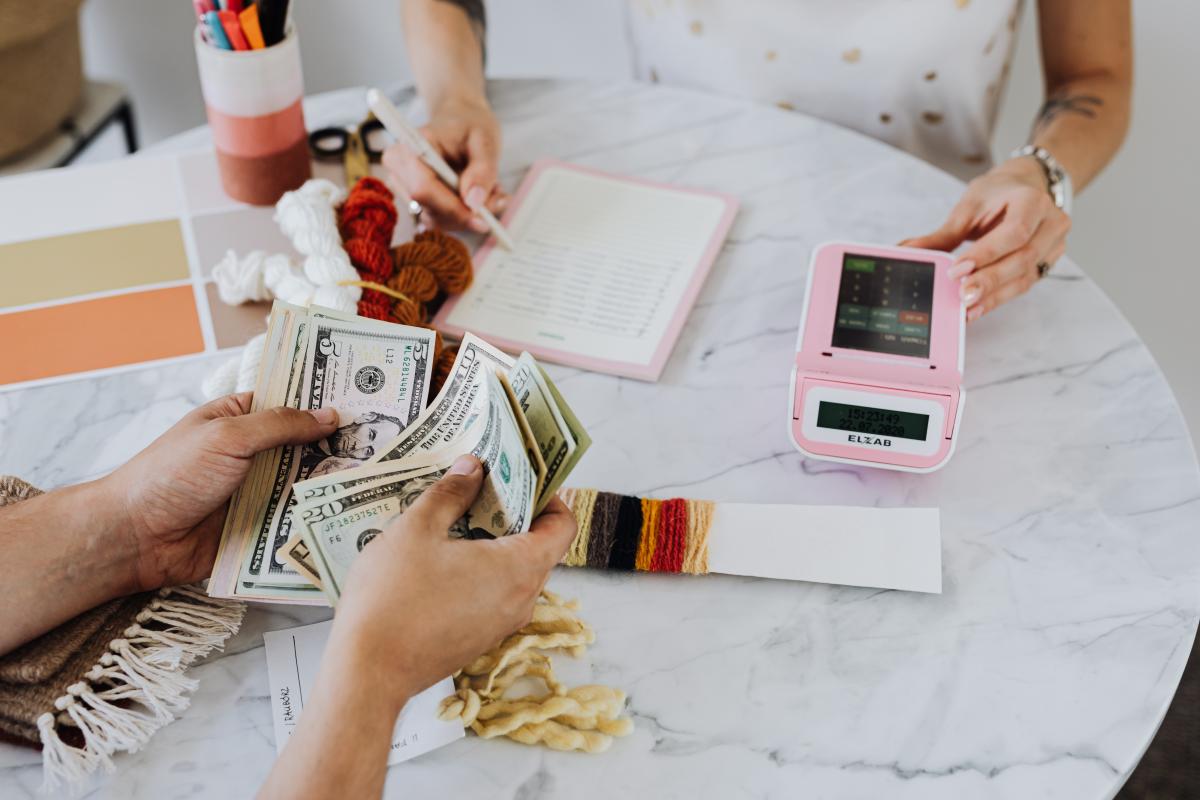DJs have long been navigating the complex path of the music industry, driven by their passion for their craft. While this passion is crucial to an artist’s success, it is also essential to focus on generating income to keep your project afloat. DJs can eventually switch to working full-time in the music industry by using the right tactics and channels to grow project revenue.
In today’s digital landscape, the opportunities for DJs to generate income have multiplied in recent years. Let’s dive into a comprehensive guide encompassing this career’s top online income-generating avenues.
Rent Out Your Gear
A DJ’s journey to becoming profitable can begin by renting out their equipment through platforms like Fat Llama. This peer-to-peer rental marketplace enables DJs to turn their idle gear into a source of extra income. The low costs and potential for substantial earnings make this an attractive option.
Although this method is partly in-person, the financial gain depends on your online presence regarding the actual drop-off and pickup of your DJ equipment. You can build a website around renting out your equipment if you have a variety of lighting, speakers, and a DJ board on hand. Another option is to promote your rentals on the Facebook marketplace, join and post in Subreddits that fall into this category, and look on social media for local DJs in your area who may need equipment.
The biggest downside is that you’re risking your gear in the hands of strangers. While this risk is never truly unavoidable, renting to other DJs in your community is often a fairly safe bet and can also be a great way to network within the smaller subsets of the larger community (which can lead to more gigs and, thus, more money in your pocket). Remember that working your way up the music industry is about having something to offer (often outside or on top of your artistic talents!).
The best things for this are DJ decks and sound systems, as promoters, event coordinators, and pretty much everyone in between will pay top dollar for an incredible sound system. If you can become known as the guy with the Function One system in town, everyone will come knocking at your door.
Sell Your Skills And Talent
The e-learning industry is booming, with projections estimating its value at $325 billion by 2025. DJs can tap into this market by creating and selling ‘how to DJ’ tutorials. Sharing specific skills, software recommendations, and equipment insights can be immensely valuable to aspiring DJs. Platforms like Udemy provide a platform to reach eager learners.
You can also apply to become an instructor at one of the top sites for online DJ tutorials. Some solid candidates to submit applications to would be Crossfader, Point Blank Music School, and Scratch Academy. However, teaching locally in your communities is just as valid (even from an online-only perspective). These platforms constantly develop new courses for various genres, such as mixing tech house, dubstep, dance hall, hip-hop, and more.
Many think that in 2023 and beyond, this market will be tapped out and oversaturated, but that’s far from the truth; you need to get clever. The entry-level and top-of-the-funnel content market is wholly oversaturated, but the more niche and specific you get, the better results you’ll likely have. Instead of trying to be the go-to guy for teaching DJ tricks, focus on DJing a specific genre or style. As with everything in this industry, you don’t need to be the best at anything – you find success in being the best at where two things are coverage (AKA, DJing AND Progressive House Music or Drill or Yacht Rock).
Set Up Your Own Parties
Venturing into event management can be profitable for DJs, albeit one of the riskier ones, both from a money factor and a general sense of creeping industry skepticism.
DJs can establish themselves as event organizers by booking renowned artists, securing venues, negotiating revenue shares, and mastering promotional efforts. The journey of AJ and Dolan, who began with small pub parties and now fill the 5,000-capacity Printworks club in London with “The Hydra,” exemplifies the potential for growth in this domain. Likewise, Disco Donnie started as an event promoter and has grown into a massive festival and concert organizer, dominating Texas’s EDM circuit and spreading across the United States.
This is another one of those hybrid methods to bring in money as a DJ. You can do most of the booking and planning remotely for the event, with duties like setting up an online ticket vendor, promoting the party, and locking in a venue. However, you will need to be on-site to coordinate the party when it happens.
Throwing your parties can help your career in more ways than getting you paid for the party. Once word gets out that you’re throwing your parties, other promoters and artists will knock on your door to book you at their gigs, hoping you will return the favor. Sometimes, these trades are unpaid, but that’s something you can agree upon together once the opportunities are presented to you.
Once parties get big enough, brand sponsorships can be discussed as well. Liquor, cannabis, and other brands are all looking to be seen as lifestyle brands and teaming up with music, and they see the local culture of a city as low-hanging fruit!
Sponsorships And Endorsements
DJs can leverage their influence to promote products and earn income through sponsorships and endorsements. Platforms like DJ Tech Tools offer insights into the intricacies of this revenue stream.
When you gain a sizable following, whether, on Instagram, YouTube, Twitch, or other social media platforms, you can reach out to music-based companies to feature their products in reviews, make content for them, or give them a shoutout in your videos. Some brands might even approach you to collaborate and arrange a fee for your services.
Top-tier DJs often avoid this, as peddling affiliate deals can potentially ruin their cool-person credibility. But for the working DJ just looking to maximize their revenue to feed their family or invest back into their career, there are plenty of opportunities to take advantage of.
Physical Merchandise
Branded merchandise like T-shirts, hats, and hoodies can be produced cost-effectively and sold to fans. Printful’s integration with SoundJam DJ website builder streamlines the process, eliminating upfront costs.
You can also start a Shopify store and sell merch off of there. Basketball, baseball, and hockey jerseys, especially for artists in bass music, are a scorching trend right now. Also, think outside the box when developing product ideas; ensure they align with your brand. Two great examples of this are John Summit’s ‘Smell Like Afters Candle’ and Ganja White Night’s Mr. Wobble plushie.
Additionally, Vinyl sales are experiencing a resurgence. DJs like DJ Woody have successfully launched short-run vinyl presses, catering to enthusiasts seeking unique scratch samples. Even if you are a veteran DJ, a ‘greatest hits’ compilation can bring in extra revenue and rekindle relationships with some of your fans who have stopped listening to your music in recent years.
Selling Custom Mixes
Many businesses pride themselves on having fantastic music playing in the background to add to the space’s ambiance. And while many store and restaurant managers invest much time and energy into curating Spotify playlists, others are just looking for a tried and true way to populate the soundscapes of their businesses.
As a DJ, nobody can read a room better than you, and selling custom mixes can be a great way to generate some extra cash. Dispensaries, restaurants, and lifestyle hotels are all types of businesses that we have personally seen DJs find success and clients. This certainly takes a bit of creativity and a lot of email-based outreach, but that’s not to say it’s impossible, and locking in just a couple of clients each month can bring about a solid chunk of change, all from the comfort of your home.
YouTube
YouTube offers a platform for DJs to share their knowledge and skills. Building an engaged audience is essential to qualify for the YouTube Partner Program. One of the best examples of this is James Hype’s Moving Differently series. Posting an episode each week, from 30 minutes to an hour, the videos dive into the highlights of James’ sets for that week, traveling with his team, and various clips from his personal and professional life.
Fusing vlog format with live DJing is a recipe for success. James’ channel has accumulated total video plays in the tens of millions, and he now has more than 750,000 subscribers. He also balances Moving Differently (60+ episodes) with full sets from festival and club performances.
This leads us to how crucial posting sets on YouTube and SoundCloud can be for your audience. You want to post frequently but not too frequently. Listeners mustn’t be hearing the same set or the same songs repeatedly, so make sure each set boasts a fairly unique tracklist from the previous. Vintage Culture is a household name in the house and techno scene for posting a ton of their extended sets. VC’s 6-hour sets on YouTube are a must-watch for any aspiring DJ within the same space.
Subscriptions
In a rapidly evolving music industry, diversification is key for survival. One of the standout solutions for many music producers and DJs post-2020 has been Patreon. Often considered a lifeline when the live music scene faced a catastrophic halt due to COVID, Patreon offers a platform that allows creatives to connect directly with their audiences, providing financial and emotional support.
Patreon’s tier system is its backbone. This becomes a nuanced decision-making process for music professionals: figuring out what people want and how much they will pay. The possibilities are endless, whether exclusive tracks, production tutorials, or Q&A sessions. And let’s be clear: these tiers aren’t just about income. They’re also about community building. Opt for low-cost tiers for a high volume of patrons, or aim for more exclusivity with higher price points. Either way, establishing a genuine community through Patreon can lead to fruitful connections, offering music fans an array of opportunities, from intimate production classes to unique musical exchanges, that they won’t find anywhere else.
Of course, maintaining this kind of engagement isn’t easy. It requires consistency and quality, as fluctuating patron numbers are an ongoing challenge. Successful Patreon campaigns often communicate transparently and deliver on their promises, creating invaluable mutual trust. Moreover, the platform works with other channels—think websites and social media—to offer a seamless, holistic experience.
Your patrons should feel they’re getting an inside look at your creative process, something worth more than just the price of a monthly subscription. Ultimately, this commitment to your community sustains and grows your audience, making Patreon a viable and rewarding financial strategy for DJs and music producers.
Radio Shows
DJs can host radio shows on commercial or internet-based platforms. Kurupt FM’s journey, from broadcasting UK Garage from a high-rise flat in Brentford to sharing the stage with renowned artists like Stormzy and Craig David, showcases the potential in radio. Another solid radio show is Diplo’s Revolution on Sirius XM. His name alone draws in listeners for the overarching company, and you best believe that Diplo is paid handsomely for his station.
Creating a radio show can be a fair amount of work, but once the content is made, there are many ways to monetize it. Sites like Mixcloud allow DJs to make money off their mixes, and even getting onto Apple Music can help your career and the artists you support. Radio Shows are a grind, without a doubt, but can be worth it if you play the long game well.
Livestreaming
Monetizing live-streaming performances is a complex yet lucrative endeavor.
Artists and DJs can learn a thing or two from the adult and gaming industries—experts at using free content to convert viewers into paying customers. To get your audience’s attention, offer an engaging sneak peek on popular social media platforms like Facebook, Instagram, TikTok, and Twitch. Schedule your performances consistently and market them vigorously. Timing is crucial—announce the event a week, a day, and an hour before it starts. Tailor your promotional materials to global time zones or consider dual start times to suit audiences from CET to JST.
Artists like David Hohme take full advantage of Twitch’s streaming features and consistently host extended DJ sets where he can communicate and connect with his fans from the comfort of his studio. Not only does it help his career, but it also helps expose the promoters and brands he works with to a broader audience like he did with this 5-hour set from SET Underground, originally done on Twitch and then ported over to YouTube.
Treat your online events like a Kickstarter campaign with tiered access options. Free viewers can get 5 to 15 minutes of content on one or more social platforms. For dedicated fans, create limited interactive experiences like Zoom parties or post-show discussions. A well-structured tiered system encourages casual supporters to upgrade their access level. Use social proofs to incentivize: let your most devoted followers gift tickets to friends, establishing a sense of community and multiplying your viewer base.
Copyright violations can turn into show-stoppers, literally.
To avoid takedowns, leverage the power of muted videos. These are visuals without audio, which circumvent automated content detection systems. Tease your content with muted videos accompanied by captions or subtitles, directing viewers to platforms where they can experience the full audio-visual treat. Incorporate a call-to-action and platform-specific features to enhance engagement.
By applying these strategies, you can monetize your performances while dodging copyright hurdles, ensuring your content reaches its intended audience hassle-free.




















